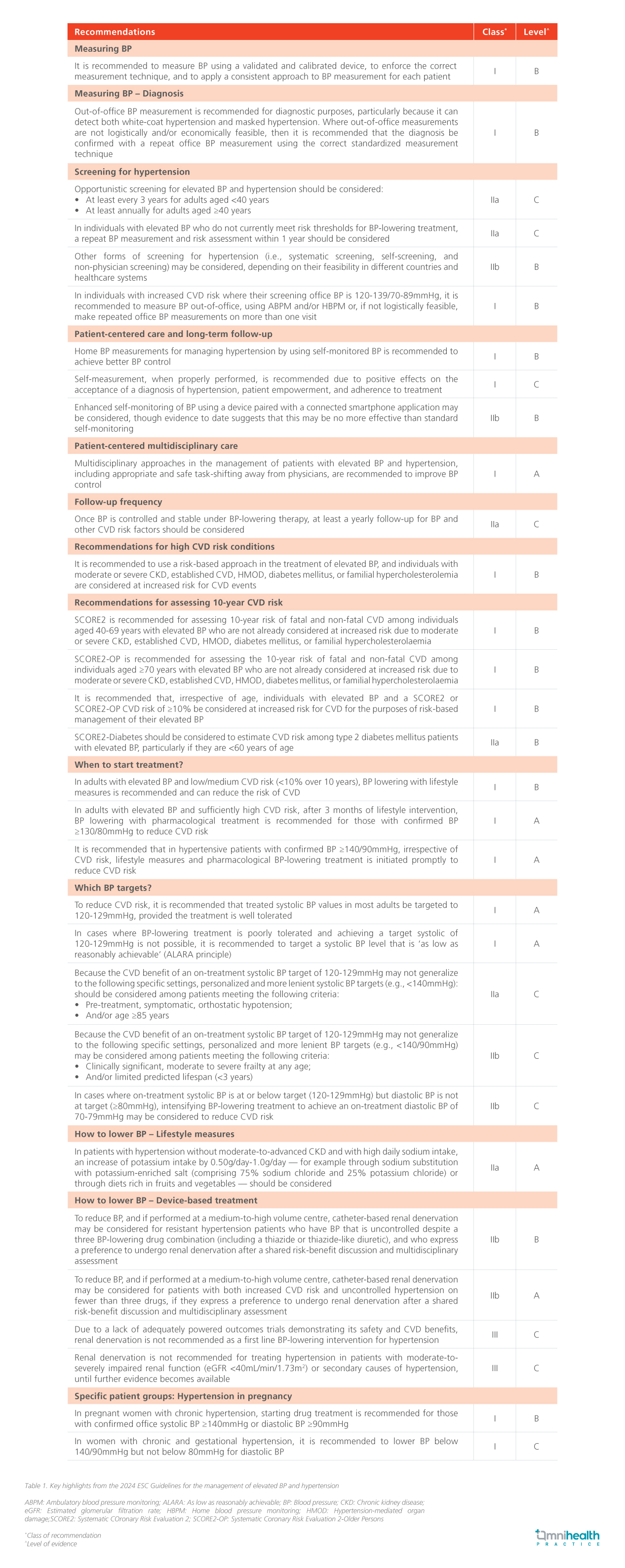CONFERENCE UDPATE: ESC 2024
Redefining hypertension with new categories and monitoring strategies in the 2024 ESC update
The hypertension paradox persists, with the rising prevalence of hypertension and many patients remaining inadequately controlled despite advancements in therapy.1 New clinical evidence calls for updated guidelines to translate these findings into practice, particularly in addressing cardiovascular disease (CVD) risk across a continuum of blood pressure (BP) levels.2,3 The 2024 ESC/European Society of Hypertension (ESH) guidelines reflect this by incorporating “elevated BP” into their title and emphasizing the consistent benefits of BP-lowering treatments, even for those below traditional hypertension thresholds.4,5
One of the key updates was a shift to a three-category BP classification system, introducing a new “elevated BP” group (120-139/70-89mmHg).5 The guidelines recommend a risk-based approach, particularly for high-risk patients such as those with diabetes, kidney disease, or cardiovascular conditions, who are more likely to benefit from BP-lowering interventions.6 Emphasis is placed on ambulatory BP monitoring and validated home monitors to empower a self-directed care approach to long-term BP management.5 Additionally, renal denervation is mentioned for the first time as a treatment option for resistant hypertension in select patients with uncontrolled BP.5
Lifestyle modifications remain a cornerstone of hypertension management, with updated recommendations on potassium intake and the “as low as reasonably achievable (ALARA)” principle for BP targets in frail individuals.5 The guidelines also integrate sex and gender considerations throughout, ensuring a more comprehensive approach to hyper tension risk.5
The development of this guideline concluded after 3 rounds of peer review with >100 independent reviewers.7 The writing committee drafted 57 new recommendations along with several updates that serve as the foundation of the revision.7 Published in the European Hear t Journal, the guidelines were developed by an international panel of experts.5 An overview of the key updates was presented by co-chairpersons Professor Bill McEvoy from the University of Galway in Ireland and Professor Rhian Touyz from McGill University in Canada, alongside Professor Richard McManus of the University of Oxford in the United Kingdom, Dr. Cian McCarthy from the Massachusetts General Hospital in the United States, and Professor Rosa Maria Bruno of PARCC INSERM U970 European Hospital Georges Pompidou APHP in France at the recent ESC Congress 2024 (table 1).7


